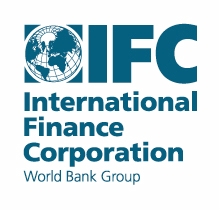Asia & Australia
2- Agence française de développement (AFD)
 We advised on the design of a capacity building programme for Bank Mandiri, Indonesia’s largest bank, as part of the ongoing support provided by AFD to Bank Mandiri to develop its low-carbon expertise and financing and its social and environmental appraisal procedures (which included a €100mln credit line in 2010) (2011.)
We advised on the design of a capacity building programme for Bank Mandiri, Indonesia’s largest bank, as part of the ongoing support provided by AFD to Bank Mandiri to develop its low-carbon expertise and financing and its social and environmental appraisal procedures (which included a €100mln credit line in 2010) (2011.)
4- Agence française de développement (AFD)

We conducted as part of a team led by Frankfurt School of Finance and Management an ex-post evaluation of the first AFD energy efficiency and renewable energy credit line in China (2007-2009).
This was a sovereign operation whereby AFD provided a 60M€ concessional loan via the Ministry of Finance of China to three Chinese commercial banks: Shanghai-Pudong Development Bank (SPDB), China Merchants Bank (CMB), and HuaXia Bank. The evaluation also encompassed the associated technical assistance programme funded by the French Global Environment Facility (FFEM) with a €600,000 grant (2012-2013).
8- International Finance Corporation (IFC)
 One of our experts chaired an independent panel that was appointed by the IFC to assess whether an energy utility operating coal-fired generation plans in Kazakhstan in which IFC was considering investing was compliant with the 6 criteria (for investments in coal-based generation assets) laid out in the World Bank's 2008 climate change strategy: “Development and Climate Change: A Strategic Framework for the World Bank Group” (2010).
One of our experts chaired an independent panel that was appointed by the IFC to assess whether an energy utility operating coal-fired generation plans in Kazakhstan in which IFC was considering investing was compliant with the 6 criteria (for investments in coal-based generation assets) laid out in the World Bank's 2008 climate change strategy: “Development and Climate Change: A Strategic Framework for the World Bank Group” (2010).
12- United Nations Environment Programme (UNEP)
 We performed for UNEP a mid-term review of the GEF-and UN Foundation-funded Seed Capital Assistance Facility (SCAF). SCAF was designed by UNEP and is co-implemented by UNEP and the Asian Development Bank, with participation of the African Development Bank and Frankfurt School of Finance and Management (http://scaf-energy.org/about/introduction.html).
We performed for UNEP a mid-term review of the GEF-and UN Foundation-funded Seed Capital Assistance Facility (SCAF). SCAF was designed by UNEP and is co-implemented by UNEP and the Asian Development Bank, with participation of the African Development Bank and Frankfurt School of Finance and Management (http://scaf-energy.org/about/introduction.html).
The facility is aimed at helping early stage clean energy enterprises and projects in Africa and Asia access start-up seed capital from commercial energy investors. It is currently implemented through six clean energy investment funds: Evolution One, DI Frontier and Lereko Metier (Africa), Aloe, Armstrong and Berkeley (Asia).
The review concluded that despite delays in operationalizing the facility (a key negative factor was the financial crisis that hit the broader investment industry starting in 2008, impacting SCAF via the difficulty for funds to raise capital as quickly and as much as expected) SCAF is now delivering results. The 6 cooperating funds are increasingly convincing their investors to back early stage investment strategies; are developing pipelines of early stage projects and providing seed financing to the best of them with a good probability that most will reach full financial close. SCAF compares well to similar public finance mechanisms in particular in avoiding the risk of donors ‘picking winners’. Sustainability remains a question mark, as these early results will need to be confirmed, and amplified. Ultimately, sustainability will derive from the emergence of a robust and financially backed renewable energy project development industry in those countries. In the meantime, SCAF usefully contributes to accelerate this process (2012).

